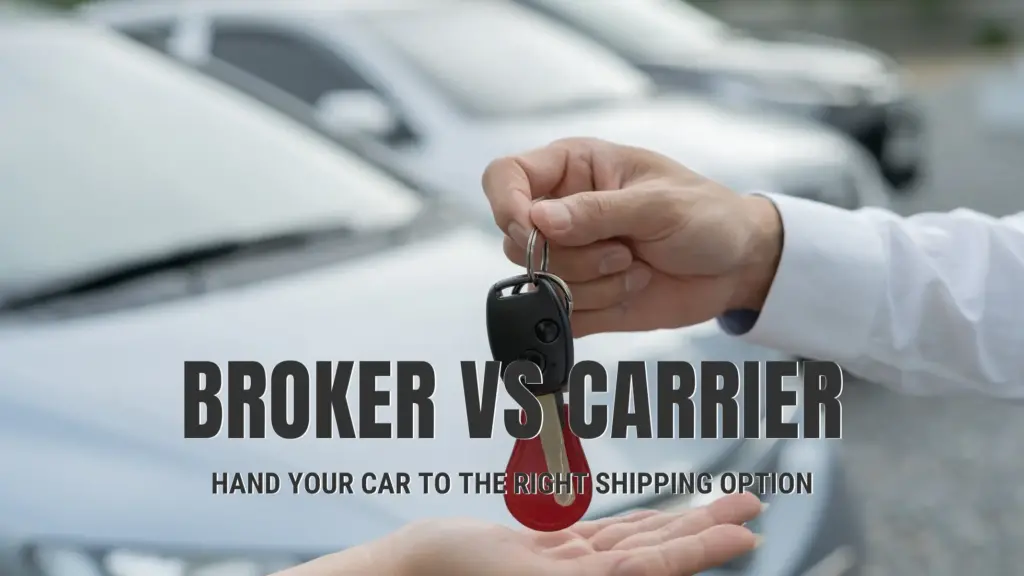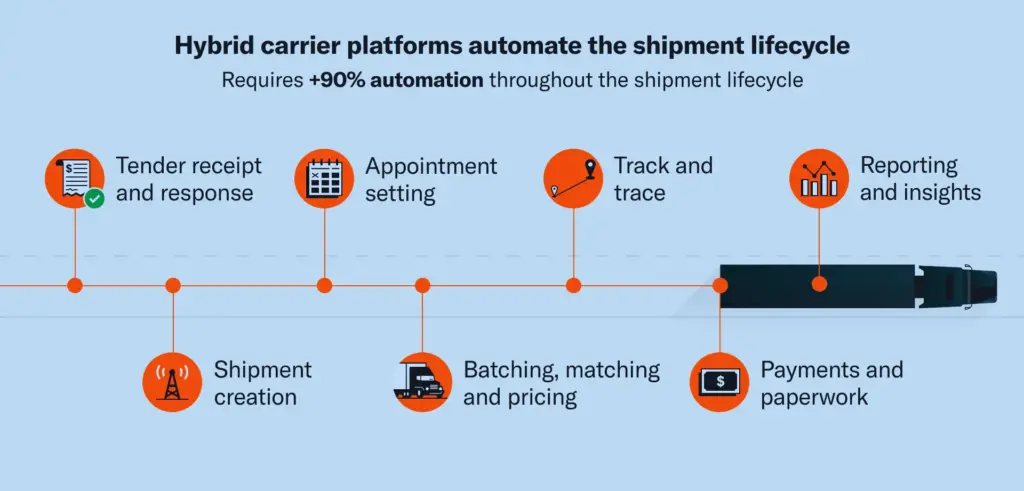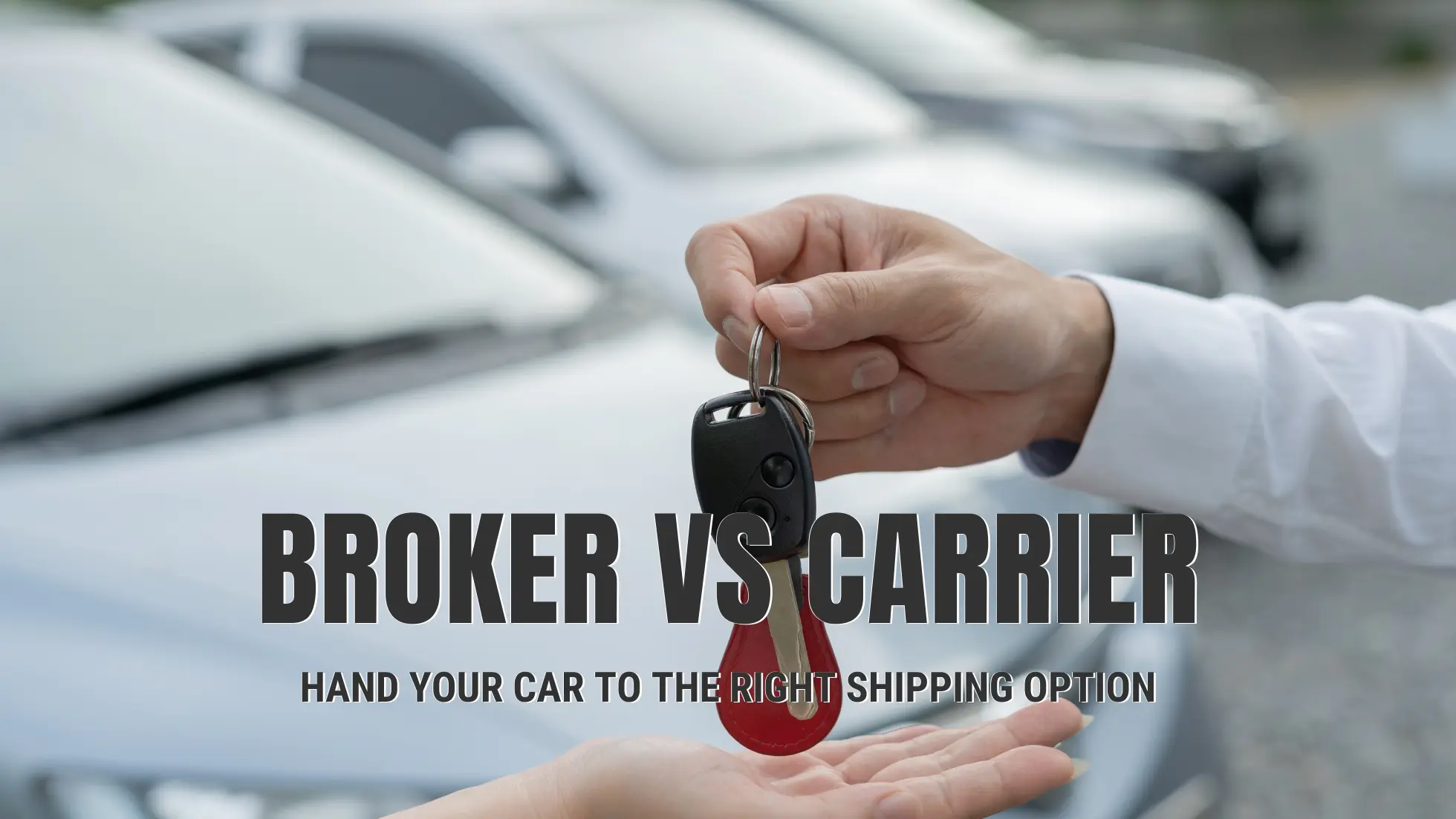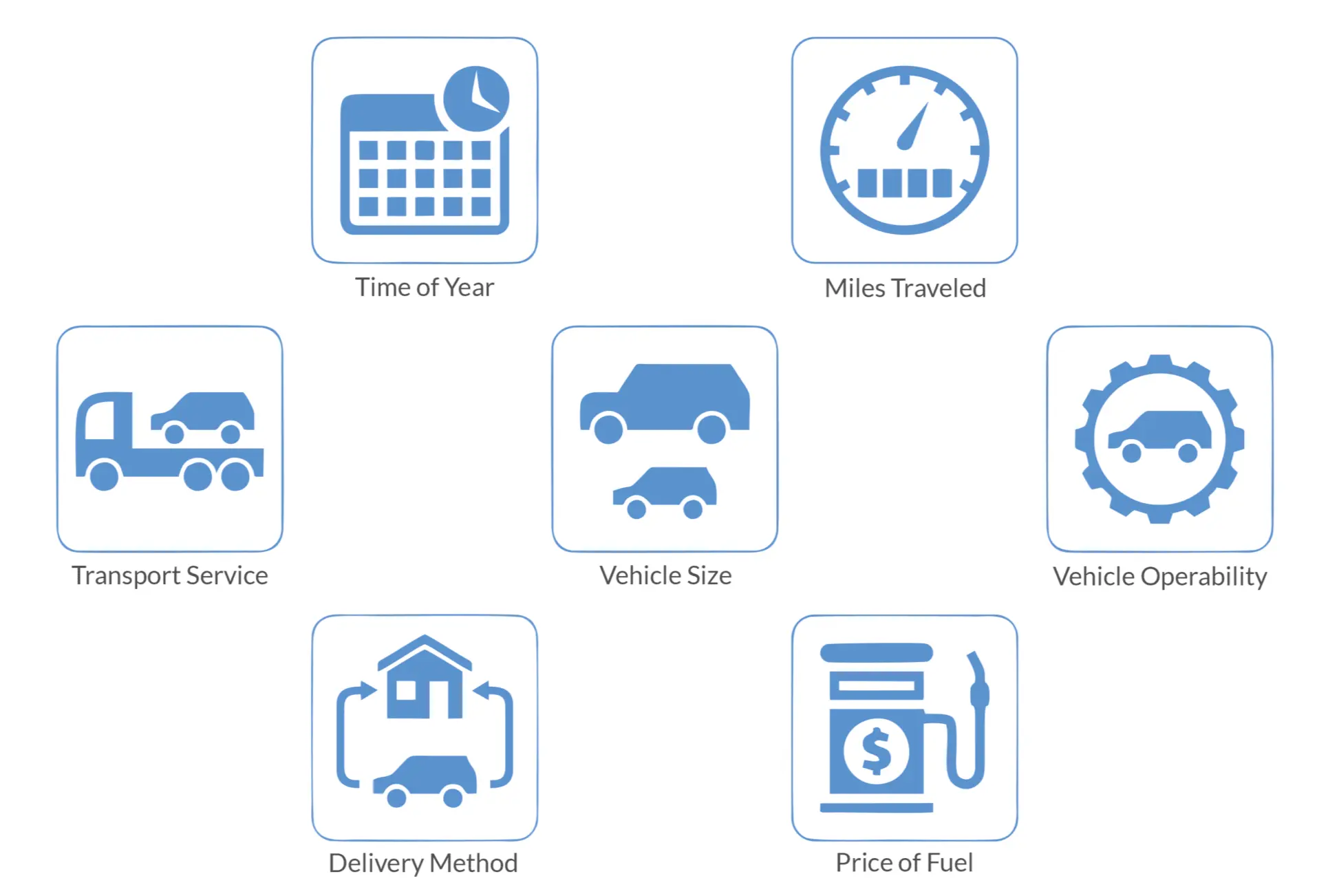When you decide to move your vehicle, you might find yourself caught in the middle of a critical decision: Should you choose an auto transport broker or go directly with a carrier?
This comprehensive guide is designed to help you understand the differences, pros, and cons of choosing an auto transport broker vs carrier.

1. Auto Transport Brokers
Auto transport brokers act as intermediaries between customers and carriers. They don’t own fleets of trucks but have access to a vast network of carriers. Their primary function is to find and vet suitable carriers for each customer based on vehicle type and shipping timeframe.
What Brokers Do
The primary role of an auto transport broker is to coordinate the car shipping process on behalf of their clients. They engage with a vast network of carriers, vetting them and selecting the most suitable one based on the client’s vehicle type, desired timeline, and destination.
The Pros of Working with Brokers
- Flexibility: They can cater to any vehicle type, shipping destination, and timeframe since they aren’t tied to specific routes or schedules.
- Time-Saving: By leveraging their network of carriers, brokers can quickly find the most suitable carrier for your needs.
- Carrier Vetting: Brokers handle the task of verifying the carrier’s licenses, insurance, and USDOT credentials.
- Customer Service: Many brokers excel in customer service, providing regular updates and handling any issues that may arise during the shipping process.
- Handling Logistics: Brokers manage the logistical aspects of vehicle transportation, including scheduling pickups and deliveries, coordinating routes, and addressing any unforeseen challenges that may arise during transit.
- Negotiating Rates and Terms: Brokers negotiate rates and terms on behalf of their clients, striving to secure the most favorable deals possible. Their expertise in the industry allows them to navigate pricing structures and contractual agreements effectively.
The Cons of Working with Brokers
- Multiple Parties Involved: Working with a broker means adding an extra layer in the communication process.
- Cost: Since brokers are middlemen, they add their fee to the cost of shipping, which might increase the overall expense.
2. Car Carriers
Car carriers are companies that own their own trucks and carry out the actual transportation of vehicles. They are the hands-on operators in the auto transport industry.
What Carriers Do
Car carriers pick up the vehicle from the designated location and deliver it to the required destination. They handle the physical transportation of the vehicles.
The Pros of Working with Carriers
- Cost-Effective: As there’s no middleman involved, you may end up paying less when dealing directly with a carrier.
- Direct Communication: Working directly with a carrier provides you with a single point of contact, which can simplify the communication process.
The Cons of Working with Carriers
- Limited Options: Carriers may not provide as many options as brokers in terms of routes and timelines.
- Harder to Find: Carriers are usually less visible online, making it more challenging to find and contact them.
- Customer Service: Often, carriers prioritize transporting vehicles over communication, potentially leading to less-than-stellar customer service.
3. Auto Transport Management Companies (Broker/Carrier Hybrid)

A third category, broker/carrier hybrid companies, or auto transport management companies, combines the benefits of both brokers and carriers. They own fleets of trucks and also have access to a network of carriers. These companies manage the entire auto transport process, from quoting to delivery.
Comparing Auto Transport Brokers vs Carriers
Let’s evaluate the key aspects of auto transport brokers and carriers side by side.
Price Comparison
When comparing the auto transport broker vs carrier in terms of price, brokers often provide lower initial quotes due to their ability to compare prices across multiple carriers. Still, the final bill may be higher due to the broker’s commission.
Carriers, on the other hand, might provide more accurate quotes since they directly manage the shipping process. However, getting quotes from multiple carriers can be time-consuming.
Availability and Flexibility
Brokers have the upper hand in terms of availability and flexibility. They can easily find and contact various carriers to meet your needs. Carriers, while more direct, have limited reach and availability.
Customer Experience
The customer experience varies greatly between brokers and carriers. Brokers may provide multiple quotes and faster service but may lack in continuous communication once a carrier is assigned.
Carriers, while slower due to their limited resources, often offer direct and consistent communication.
Reputation and Insurance
Brokers and carriers also differ in their reputation and insurance handling. Brokers, due to their vast network, can sometimes work with less reputable carriers. Carriers, who work directly with the customer, are more transparent.
However, reputable brokers save you time by verifying license, insurance, and safety information for the carriers they use.
Which One to Choose?
Now that you understand the critical differences between auto transport brokers and carriers, you can make a more informed decision.
If you value flexibility, time-saving, and someone else handling the carrier vetting process, a broker like All Day Auto Transport might be the best fit. If direct communication and potentially lower costs are more important to you, you might prefer working with a carrier.
However, don’t disregard the broker/carrier hybrid companies, which offer the best of both worlds. They handle everything from start to end, providing a seamless auto transport experience.
Tips for Choosing the Right Company
- Get Multiple Quotes: This gives you a clear understanding of the market rates and helps you avoid overpaying.
- Consider More Than Just Cost: While auto shipping price is a significant factor, also consider the company’s reputation, customer service, and additional services offered.
- Read Reviews: Customer reviews can provide valuable insights into a company’s reliability and service quality.
- Know Your Needs: Be clear about your vehicle type, destination, and preferred shipping timeframe before seeking quotes.
Conclusion
Choosing between an auto transport broker vs carrier comes down to your specific requirements and preferences. Whether you choose a broker or a carrier, the most important aspect is to ensure that the company is reputable, reliable, and offers the specific services you need for your vehicle’s safe transportation.
Frequently Asked Questions
Yes, auto transport brokers are licensed and regulated by the Federal Motor Carrier Safety Administration (FMCSA) in the United States. Licensing ensures compliance with regulations and provides customers with confidence in the broker’s services.
Consider the broker’s reputation, customer reviews, licensing, insurance coverage, pricing, communication, and the quality of their carrier network when choosing an auto transport broker.
Yes, many brokers like All Day Auto Transport offer international vehicle shipping services, coordinating with trusted international carriers and freight forwarders to transport vehicles overseas.
Auto transport carriers can transport a variety of vehicles, including cars, trucks, SUVs, motorcycles, RVs, boats, and oversized vehicles like buses and construction equipment.




